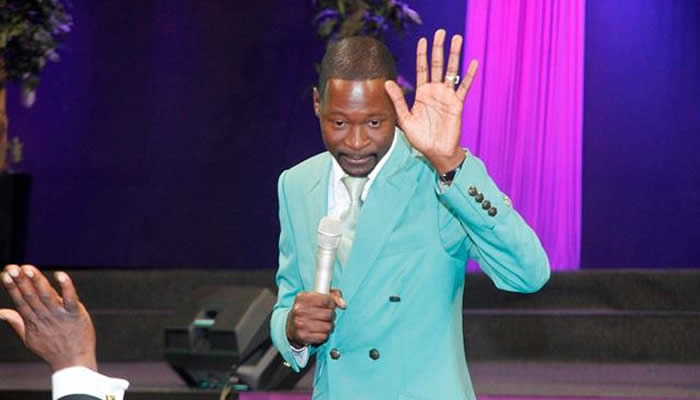By Ray Ndlovu
More clerics in Zimbabwe have joined the ranks of those taking a stand against President Robert Mugabe’s administration over the deteriorating situation in the country.

In a charged sermon delivered on Sunday morning which went viral, one of the country’s most popular religious figures Emmanuel Makandiwa, the founder and “prophet” of the United Family International Church (UFIC) warned of more protests in the country.
“There will be a wave of demonstrations, they would stop, and start again and on the fourth time the situation will get out of hand and foreign peace-keepers will be called. Remember, my prophecy about bees flying to come to bite other bees that will be stinging the people,” he said.
Makandiwa’s warning came as the country is gearing up for yet another shutdown scheduled for Wednesday and Thursday, again led by the citizens’ movement, fronted by Evans Mawarire, also a church pastor.
However, speaking from the border town of Beitbridge at the weekend, Vice President Phelekezela Mphoko warned that the military could be used to quell future protests. “We will look at our own ways of solving such problems … we have security forces. We cannot keep snakes growing in our backyards,” Mphoko said.
Internet and social media services were not widely available on Wednesday morning, when protesters clashed with the police in Harare and Bulawayo, in the latest displays of public dissent under Mugabe’s decades-long oppressive rule.
At the root of the protests last week were banks running short of cash, police extorting cash from motorists at widespread road blocks, delays in the payment of government salaries, and a ban on many basic imports at a time when the country is suffering from a severe drought that has left millions hungry.
Immediately after the protests, the government made an about turn on the payment of salaries for teachers and nurses.
The payment of their delayed June salaries had been deferred to mid-July, but on the back of the protests, teachers were promptly paid on Thursday. Health sector workers were due to receive their salaries on Friday. Soldiers, police and other security services have already been paid.
The Apex Council, the public servants representative body, had urged the government to ensure it paid the outstanding public servants on Monday and Tuesday.
A meeting was to held on Monday between public servants union leaders and the government over the payment of July salaries. Indications are that union leaders will not entertain any government deal that spills over into August.
“… Our position is that July salaries must be paid before the end of the month,” chairperson of the Apex Council, Cecilia Alexander, said on Monday.
Speaking at a rally in Bindura on Friday, Mugabe urged public servants to be “patient” and said the late payment of salaries was not grounds for industrial action.
In his Sunday morning service, Makandiwa warned that a section of Mugabe’s inner circle was plotting his downfall. “There are people who are after the president.
There are people working against him. Our president is in trouble. He is paying people that are working against him,” he said.
He also described the imports ban put in place earlier this month by the government as a joke. “You cannot promote a product that is non-existent. All this is being done to incite people to revolt…. Remove this joke,” he said.
Makandiwa’s comments are certain to pique the government, which is already facing off against Mawarire.
Other notable religious leaders to take a critical swipe against the government include Shingi Munyeza, the senior pastor at Faith Ministries.
Last month, Munyeza was questioned by the police after he posted on social media that the country was headed for “severe turbulence” and that the economic policies of the government had failed.
The Zimbabwe Christian Alliance led by Useni Sibanda has proposed for “an all stakeholder dialogue” led by the church to deal with the “root cause” of the discontent which, includes “poverty, corruption, high handedness and misplaced economic priorities”. Business Day






